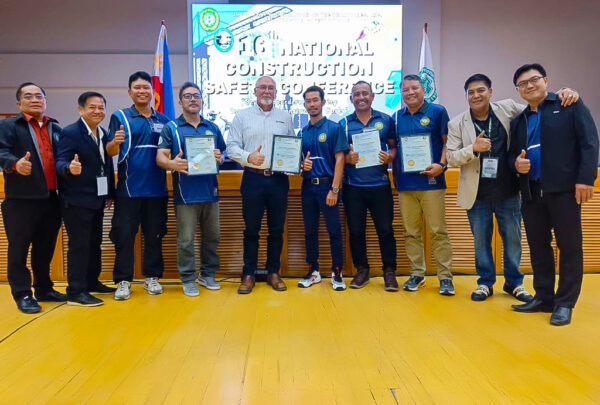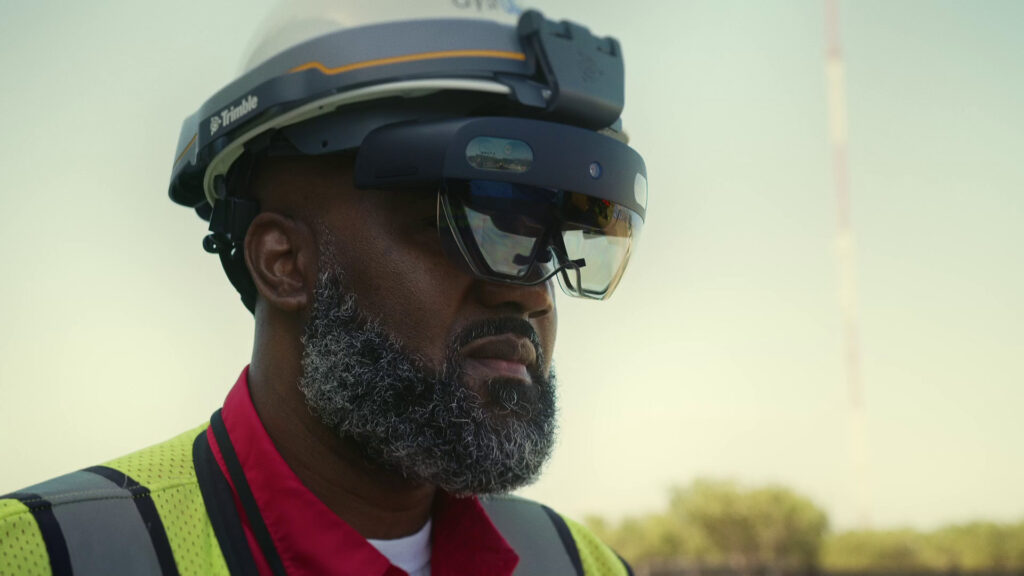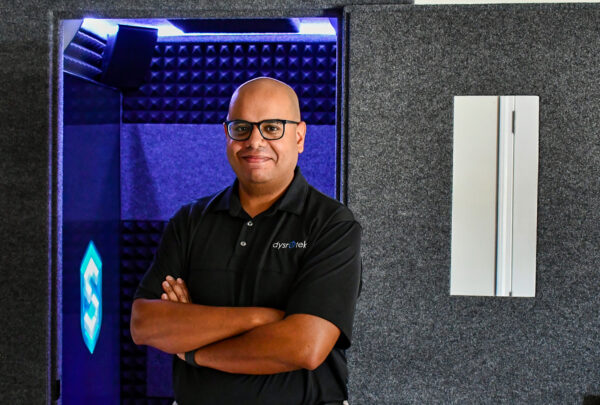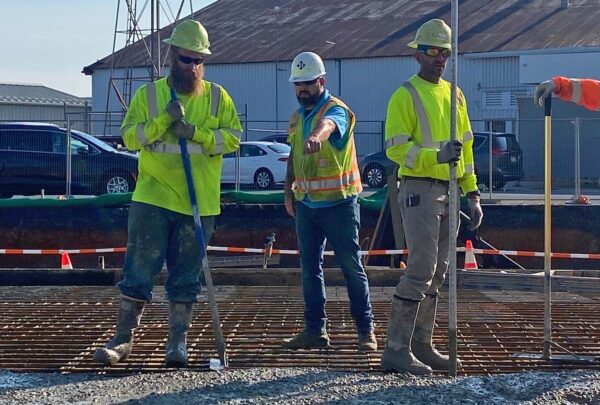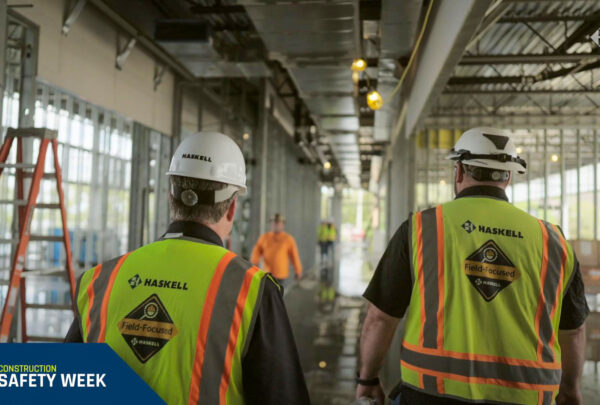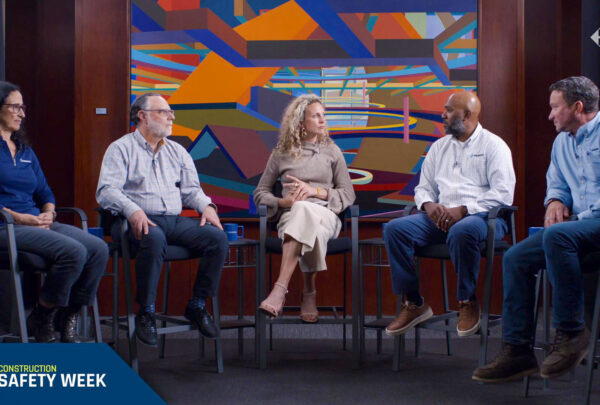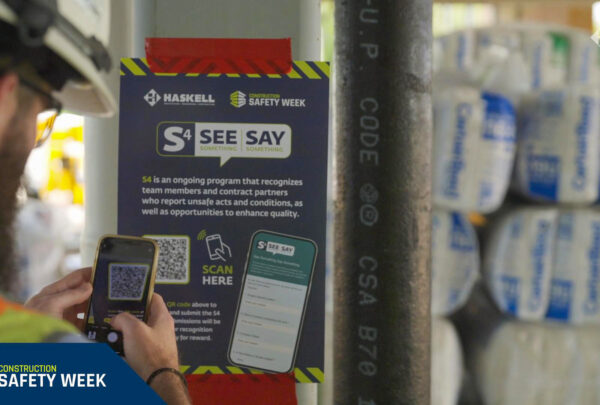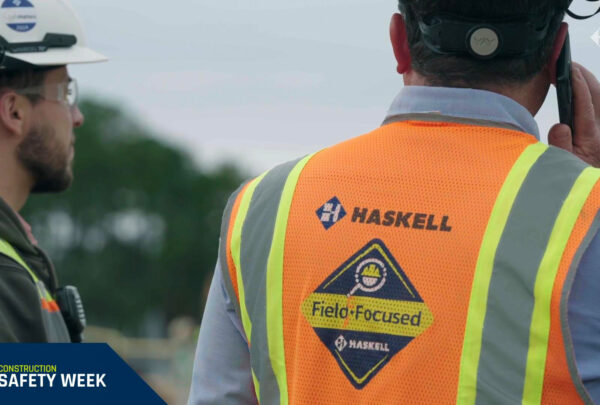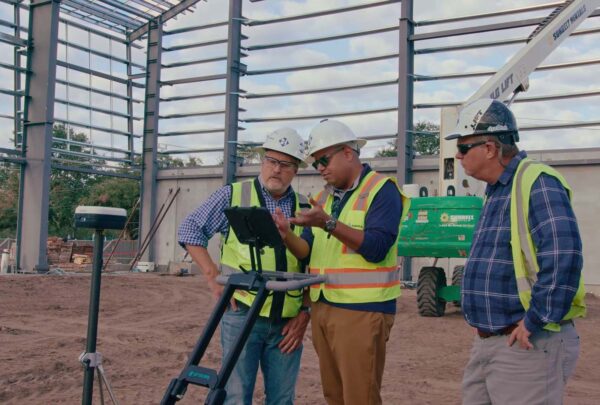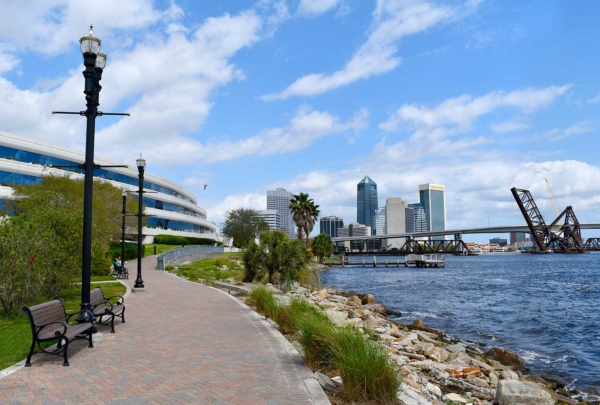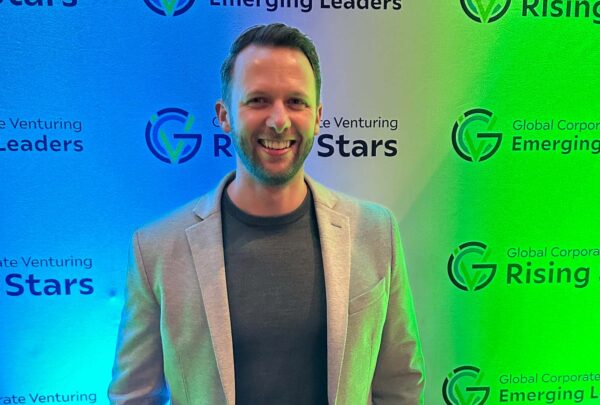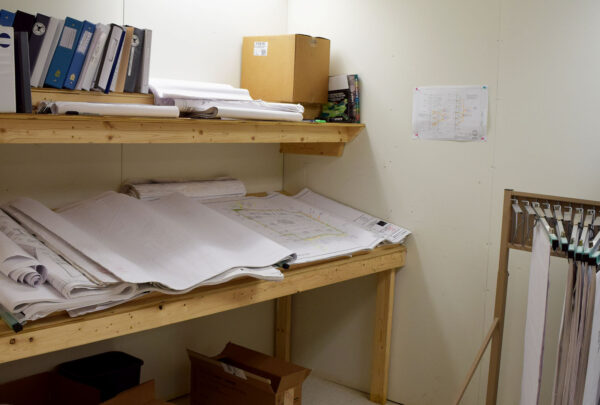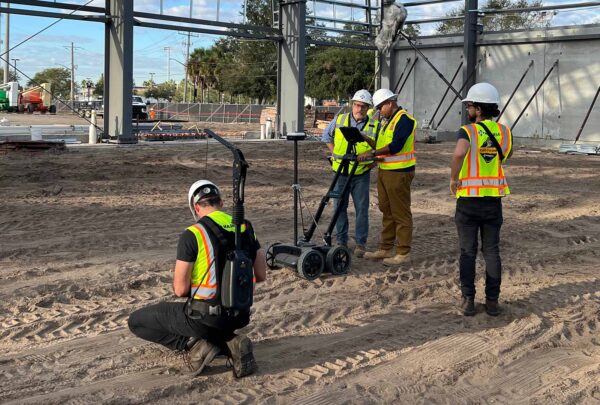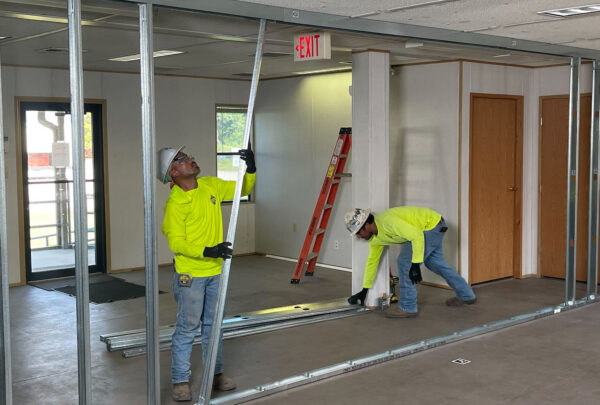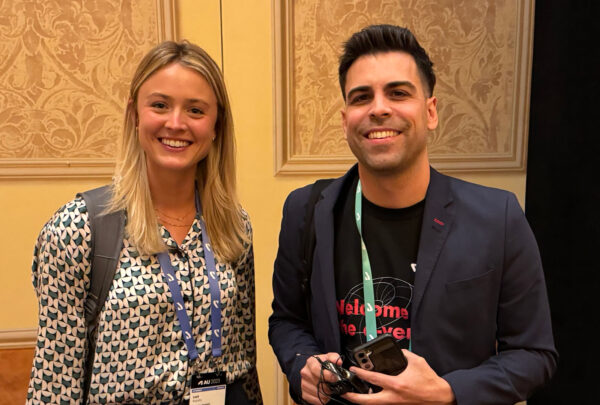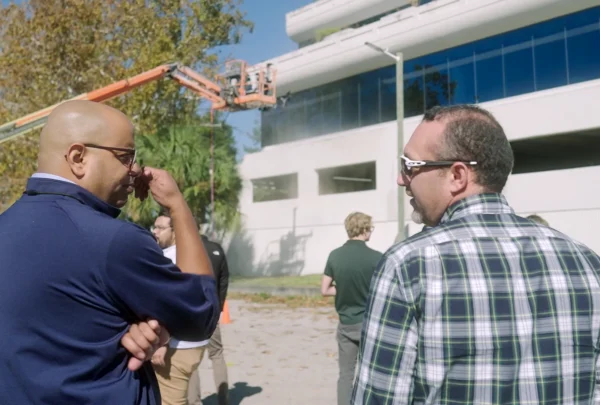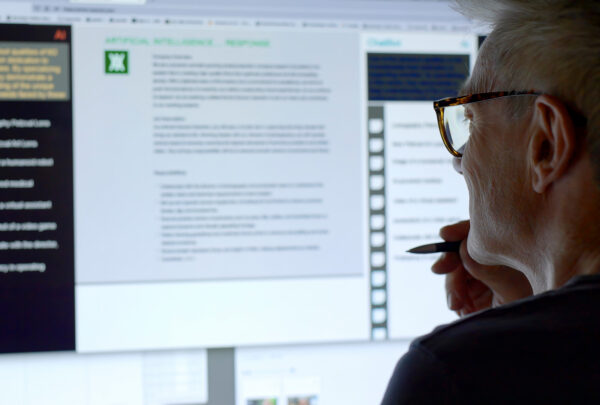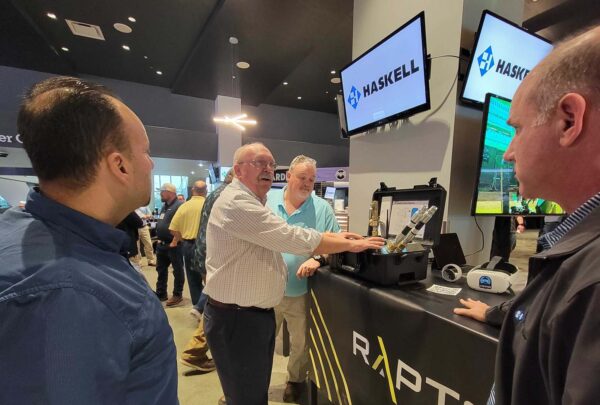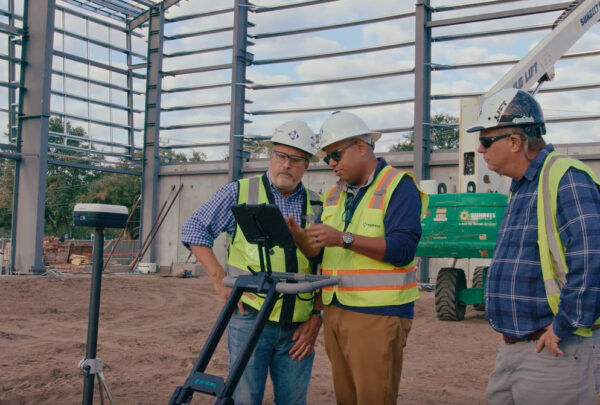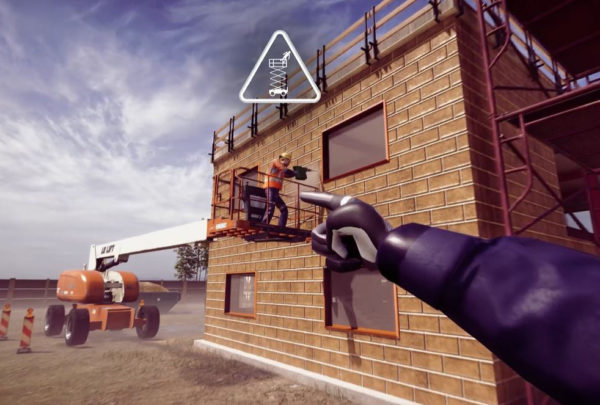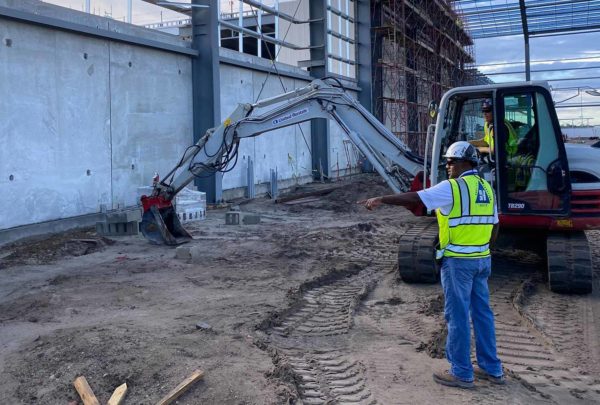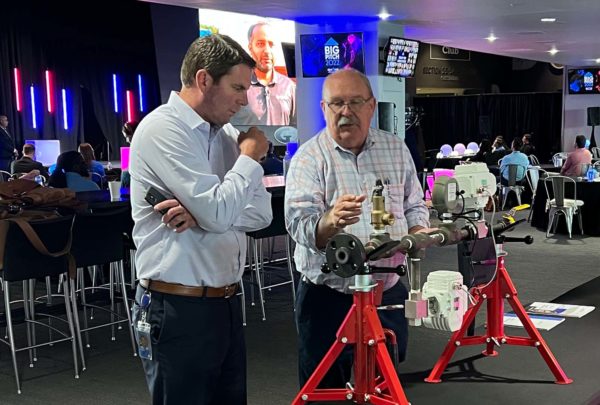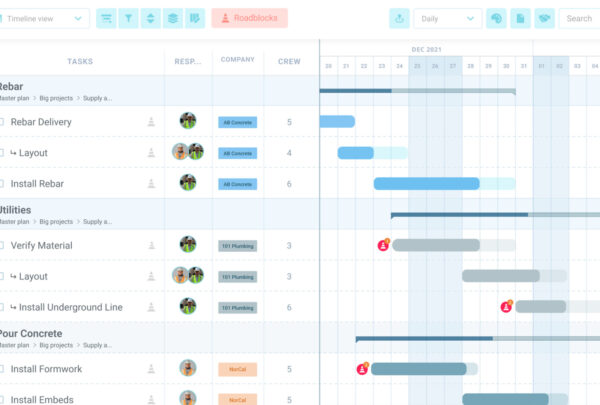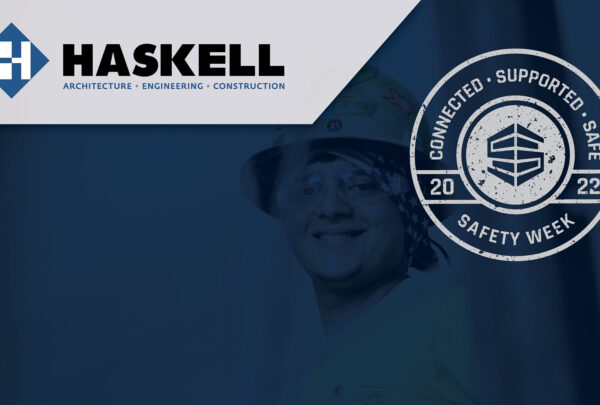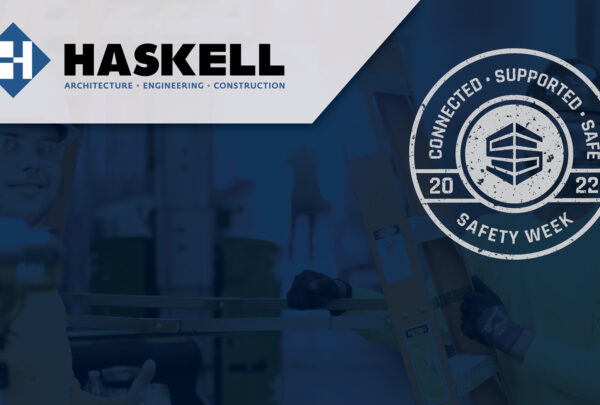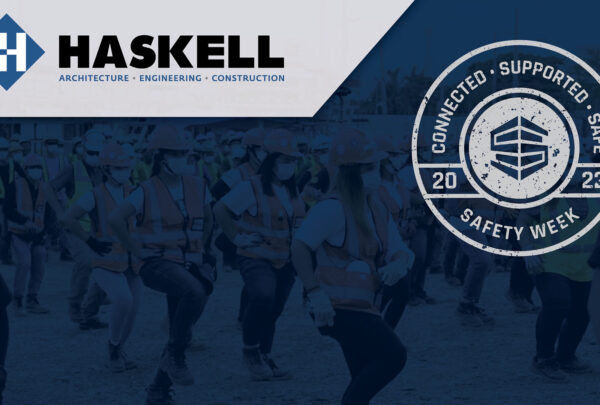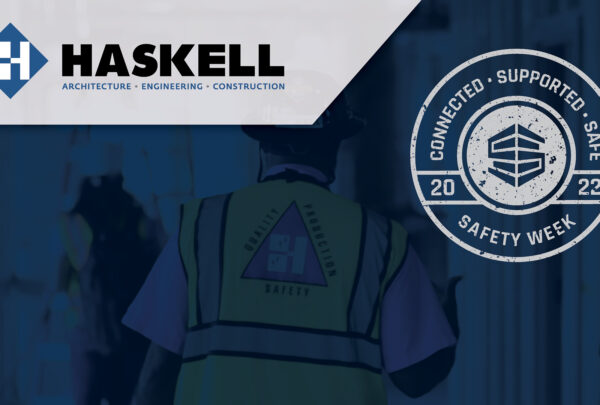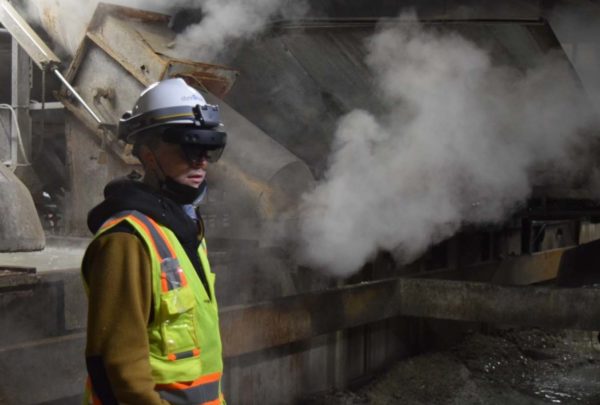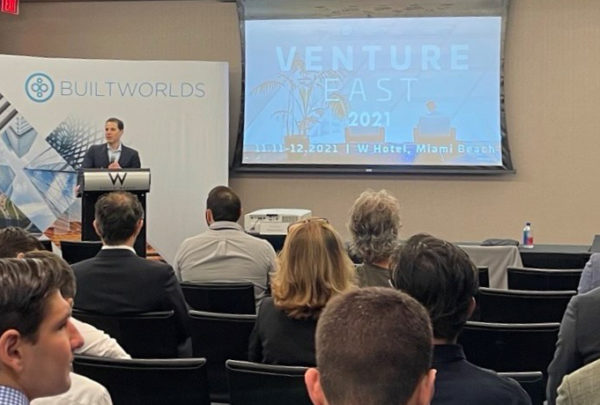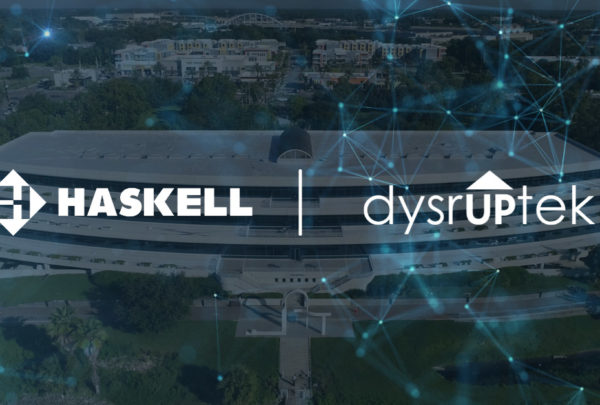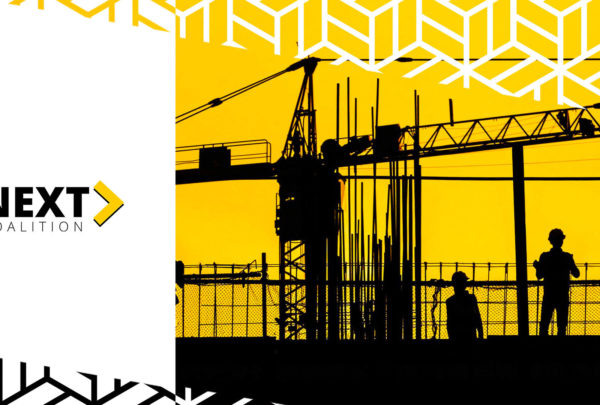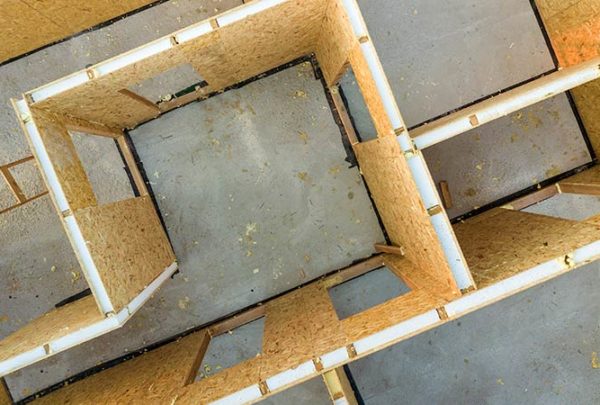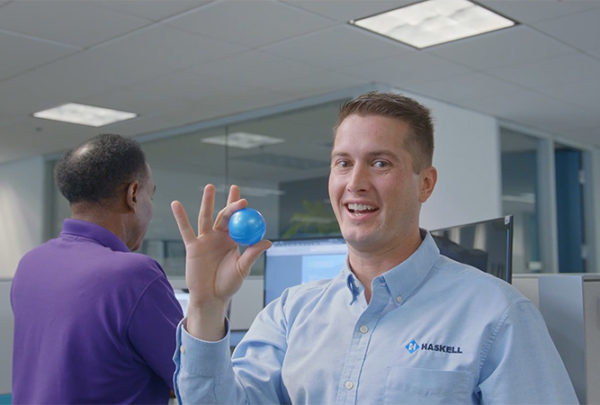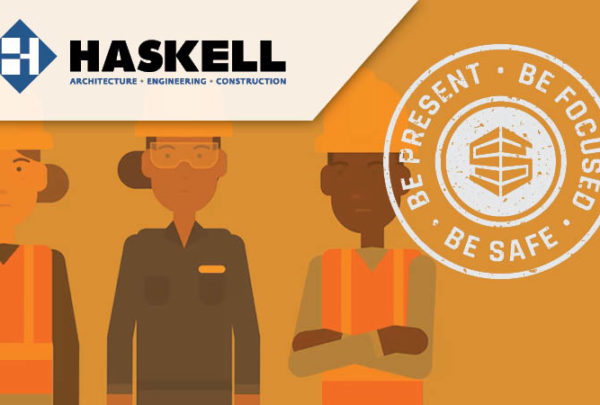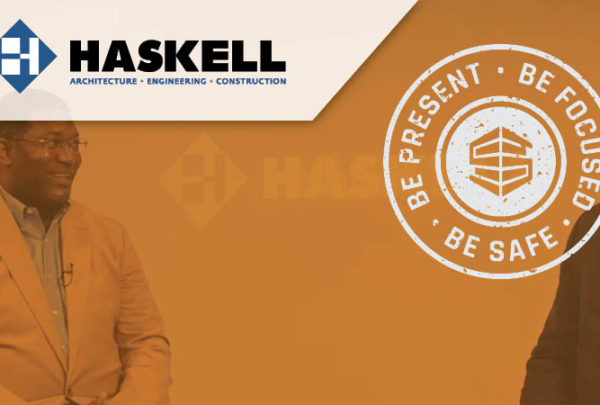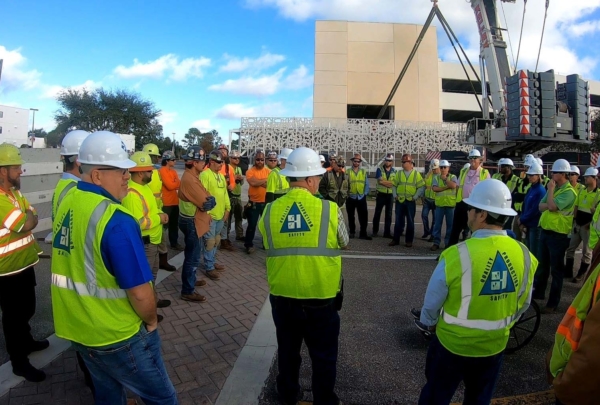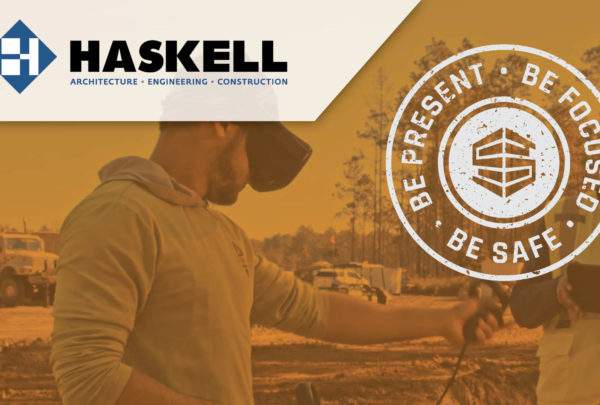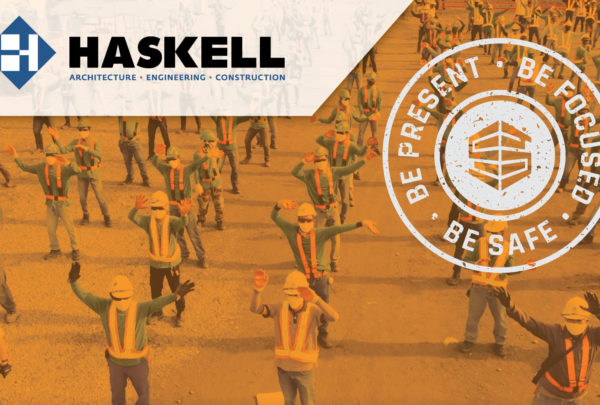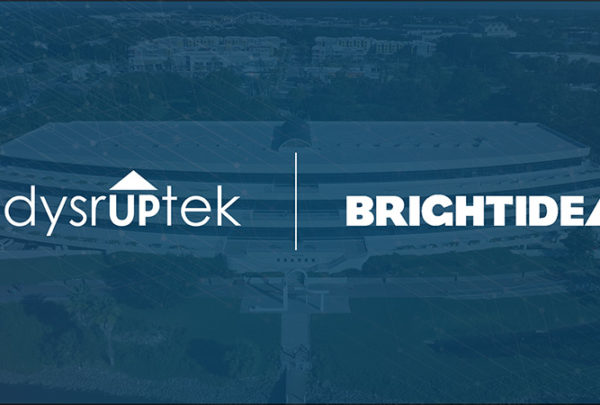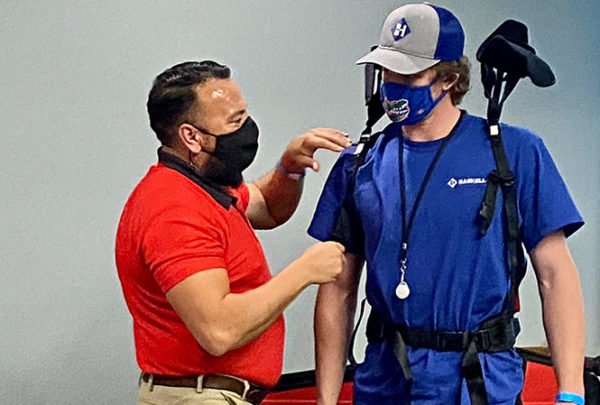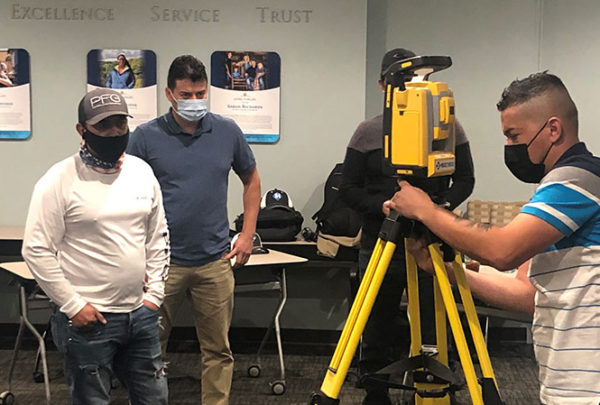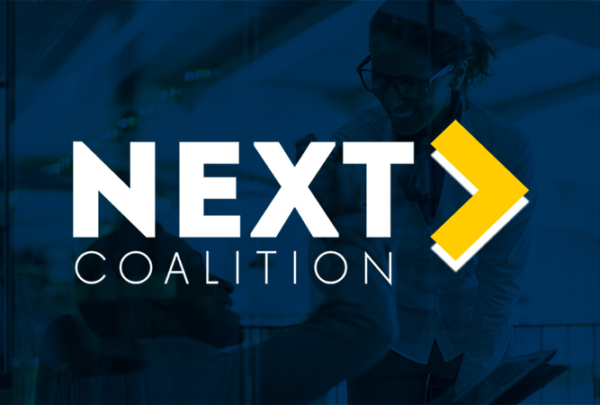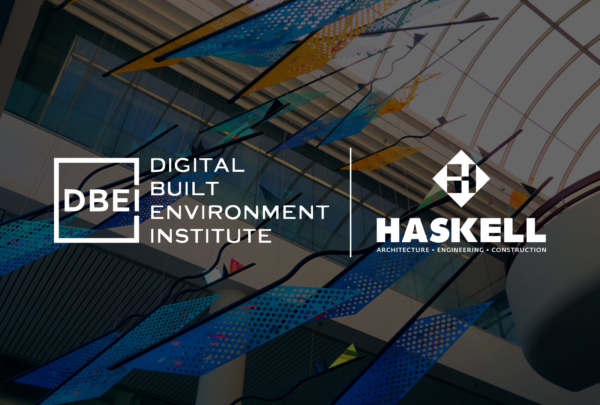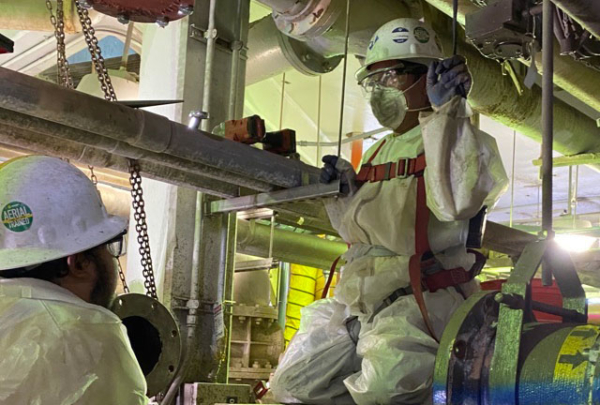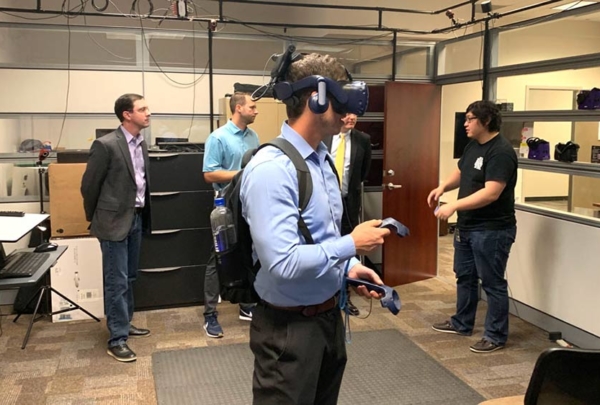Underground utility strikes are a constant hazard facing the construction industry. Existing maps and documentation may show the location of water and sewer pipes and gas, electric and telecommunication lines, but those documents often fall out of date.
In the United States in 2020, there were more than 374,000 reports of damaged underground utilities, according to the Common Ground Alliance, which tracks the reports annually.
Hitting a line with heavy equipment can result in service outages, explosions, flooding and other events that can prove costly and delay projects. In extreme cases, utility strikes can cause injury or death.
In a concerted effort to reduce this hazard, Haskell has adopted a detailed and aggressive prevention program that uses multiple and overlapping mitigation techniques that include using 811, the national call-before-you-dig line; existing maps and other documents; and ground-penetrating radar.
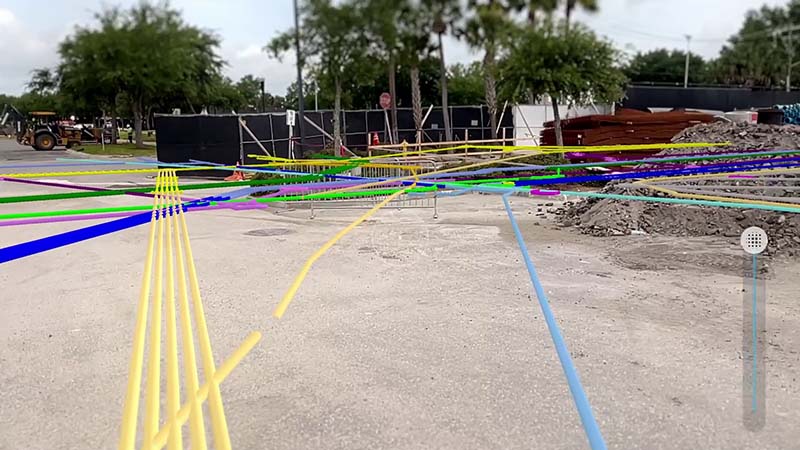
“Putting those multiple things in place allows us to know that we have done our due diligence,” said Chris Bunch, Haskell’s Corporate Safety Subject Matter Expert. “. It reduces the risk as much as possible. And in the event something does happen and we contact something we didn’t know was there, we can honestly say we have done three or four processes to identify them.”
Haskell’s newest tool is augmented reality, operationalized by Dysruptek, the company’s venture capital and innovation arm.
Data collected from maps and other sources are uploaded to augmented reality (AR) software that can be used on an iPad or tablet or with Microsoft Hololens, an AR visor. The software imposes a visual image on the existing landscape.
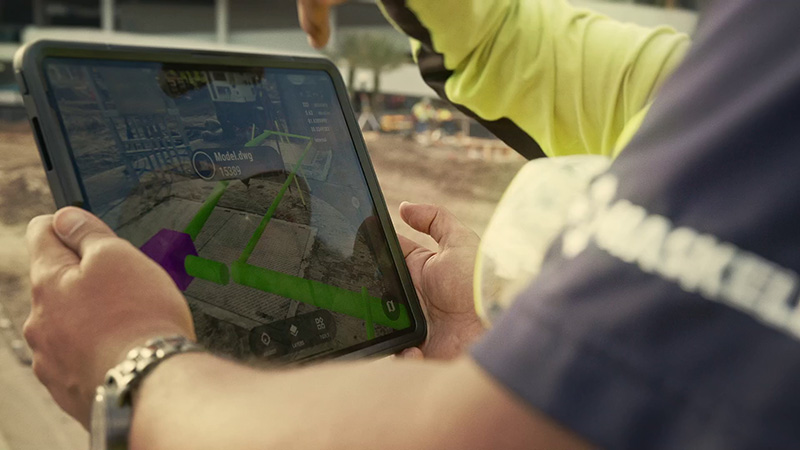
“We put it in a 3-D world and workers in the field can visualize the data within the context of the actual conditions of the jobsite,” said Hamzah Shanbari, Director of Innovation and Strategic Initiatives.
Haskell was already using AR technology to visualize construction projects when, in 2020, it began testing the technology on underground utilities.
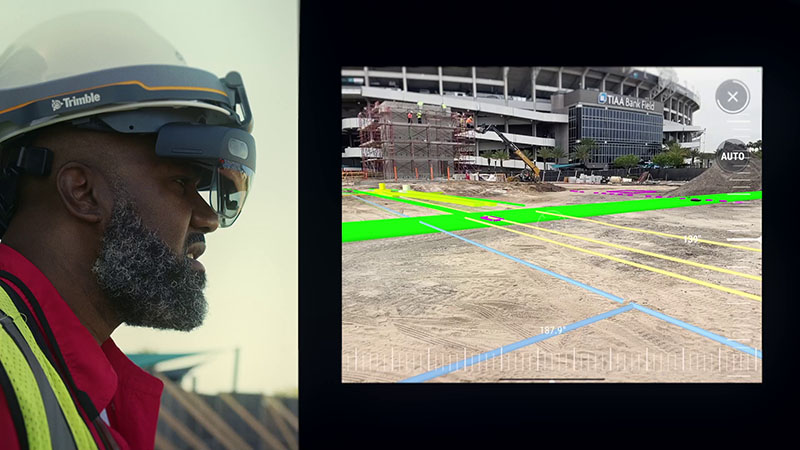
“It lets us have a really accurate map that we can turn over to the owner so they can know where the utilities are,” Bunch said. “Once the building ages out, or contractors are doing upgrades or major construction, using augmented reality they would know exactly to the millimeter where utilities are. It could curb an industrywide problem.”
Once Haskell identifies the location of underground utilities, crews expose them using soft digging techniques that include manual shoveling and vacuum trucks that remove the soil.
“Once we have eyes on the utilities, we track their path and we know where we can use mechanical excavation,” Bunch said.
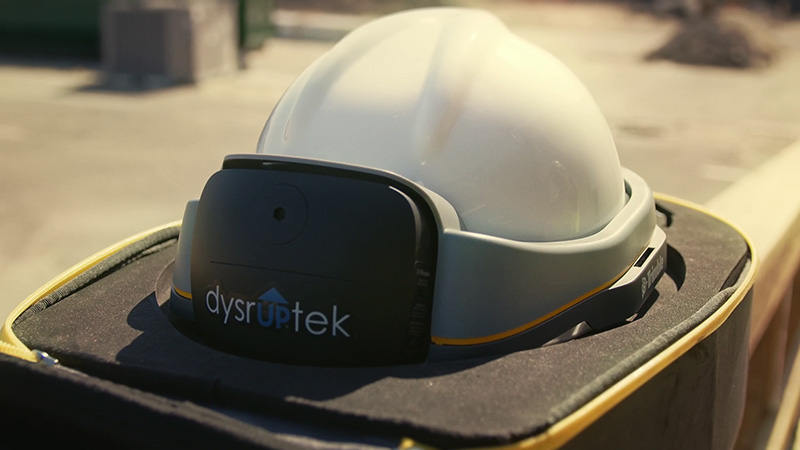
Bunch and Shanbari said that as the technology develops, they expect augmented reality to become a standard risk-mitigation technique.
“We may not know what was installed 40 or 50 years ago,” Shanbari said, “but we will be able to leave an accurate map of what we do now so that 40 or 50 years down the road they will have accurate information.”
Trust Haskell to undertake your next construction project safely and effectively. Contact our team to discuss your needs and collaborate on best-in-class solutions.
